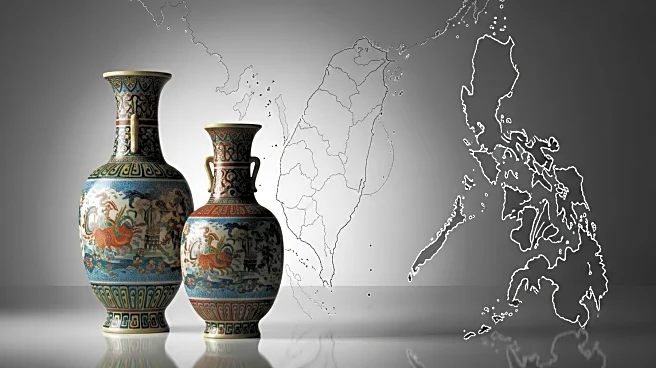What's Happening?
Taiwan's Foreign Minister Lin Chia-lung visited the Philippines as part of a high-level delegation of investors, leading to a protest from China. The visit, which included a trip to the Clark Freeport Zone, an industrial hub north of Manila, has heightened tensions between China and the Philippines. The Philippines, under its 'One China' policy, does not officially recognize Taiwan as a sovereign state, but maintains economic engagements with Taiwan. China, which claims Taiwan as part of its territory, issued a strong protest, accusing the Philippines of providing a platform for 'Taiwan independence' activities.
Why It's Important?
The visit underscores the complex geopolitical dynamics in the South China Sea region, where territorial disputes are frequent. China's protest highlights its sensitivity to any actions that might suggest support for Taiwan's independence. The Philippines' balancing act between economic interests with Taiwan and diplomatic relations with China is crucial, as it navigates its foreign policy amid regional tensions. The situation could impact trade and diplomatic relations in the region, affecting stakeholders in industries such as semiconductors and tourism.
What's Next?
China has urged the Philippines to adhere to its 'One China' policy and warned against actions that could exacerbate tensions. The Philippines may face diplomatic pressure to clarify its stance and manage its relations with both China and Taiwan. Future interactions between Taiwan and the Philippines could be closely monitored by China, potentially influencing regional diplomatic strategies and economic partnerships.
Beyond the Headlines
The incident reflects broader issues of sovereignty and territorial integrity in the region, with implications for international law and diplomatic norms. The Philippines' approach to Taiwan could set precedents for other countries navigating similar geopolitical challenges. The situation also highlights the role of economic diplomacy in shaping international relations.











